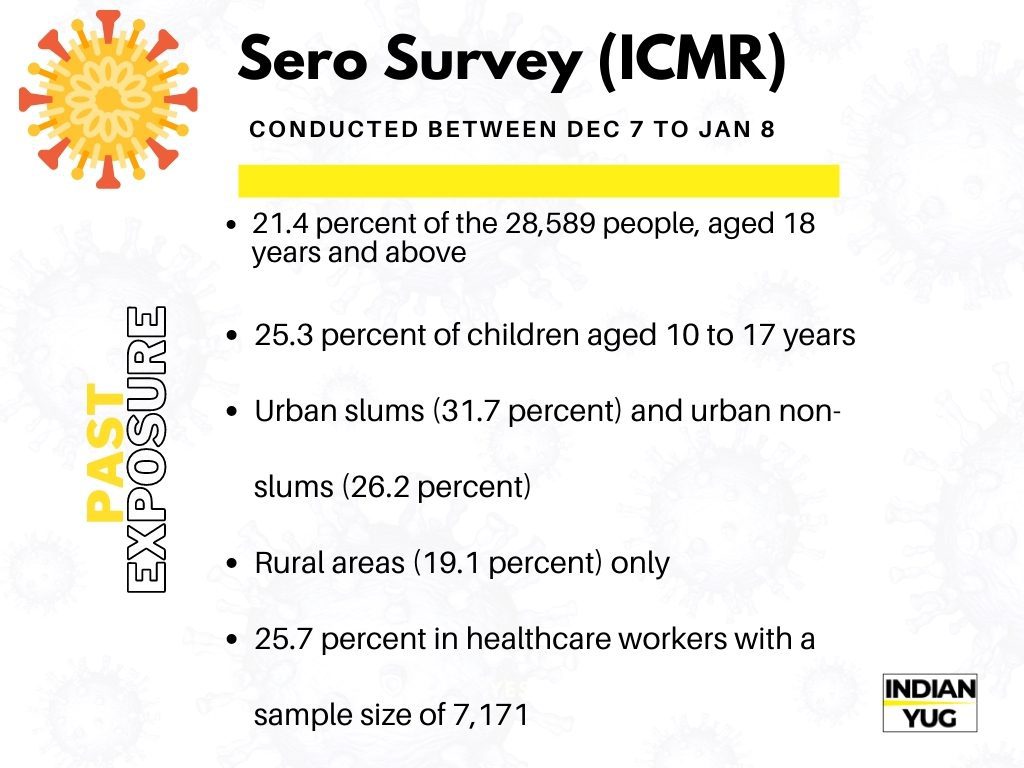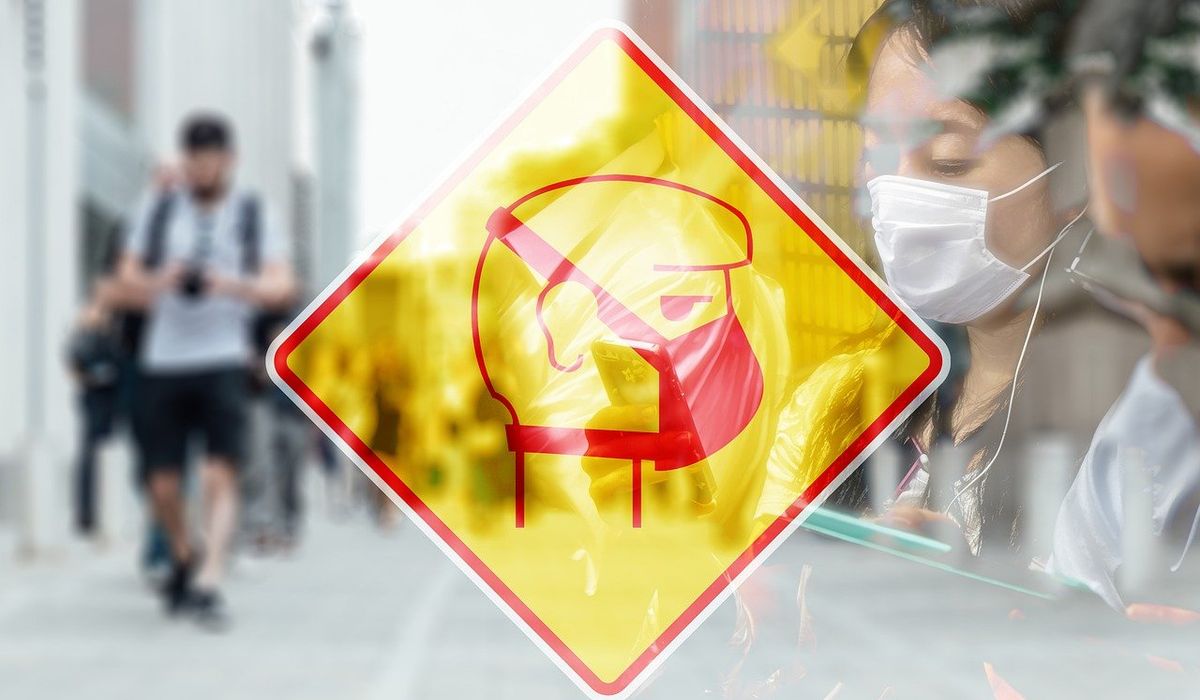The Indian Council of Medical Research (ICMR) third national serosurvey was conducted between December 7 last year to January 8, 2021.
Over 21 percent of the population in the survey who were 10 years and above, showed evidence of past exposure to COVID-19.
On ICMR’s latest national serosurvey, the government said that a large proportion of people are still vulnerable to the infection.

Presenting the findings of the survey, ICMR Director-General Dr. Balram Bhargava said 21.4 percent of the 28,589 people, aged 18 years and above, surveyed during the period showed evidence of past exposure to the coronavirus infection.
While 25.3 percent of children aged 10 to 17 years from the same number of surveyed population have had the disease, he said.
[rb_related title=”You May Also Like” total=”2″]
Urban slums (31.7 percent) and urban non-slums (26.2 percent) had a higher SARS-CoV-2 prevalence than that in rural areas (19.1 percent), Bhargava said, adding that 23.4 percent of individuals above 60 years of age had suffered from COVID-19.
Blood samples of 7,171 healthcare workers were also collected during the same period and the seroprevalence was found to be 25.7 percent, the ICMR director-general said.
The survey was conducted in the same 700 villages or wards in 70 districts in 21 states selected during the first and second rounds of the national serosurvey.
On the coronavirus situation in the country, the health ministry said India’s COVID-19 cumulative positivity rate is 5.42 percent and declining. The weekly positivity rate (last week) was recorded at 1.82 percent, it said.
It further added that 47 districts have not reported any new case of COVID-19 and 251 districts have not registered any new deaths in the last three weeks.
On vaccination, 49,93,427 beneficiaries have been vaccinated in the country out of which 11 states and Union Territories, including Tamil Nadu, Assam, Ladakh, Chandigarh, Meghalaya, and Manipur, have covered 30 percent or fewer healthcare workers through the COVID-19 vaccination, it said.
The ministry also said that 1,239 private facilities and 5,912 public facilities are being used as COVID-19 immunization sites in the country as of now.
Implications of the Sero Survey findings by ICMR
In all, the survey confirmed that herd immunity without a mass vaccination remains an infeasible goal and that we need to continue to follow masking, and physical distancing in public places, and personal hygiene protocols. It’s safe to say that the people were slightly disappointed, perhaps, but not surprised.
Further, a seroprevalence does not guarantee an escape from reinfection. A case in point is the 76% estimate of past infection in Manaus, Brazil. The resurgence of COVID-19 has baffled scientists. While studies are going on many experts including a paper in Lancet emphasized that overestimation of past infection, immunity weakening over time, or representativeness of blood donors could very well be the reason.



